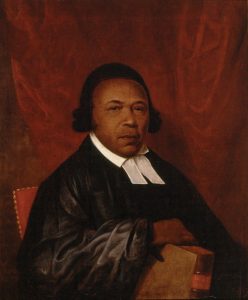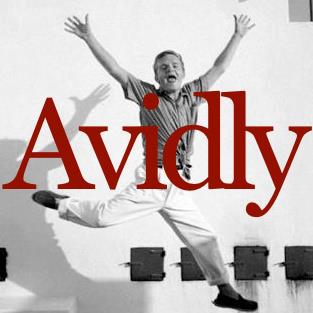If you want to denounce looting, let’s denounce LOOTING. Of our public schools, of Philly’s black wealth through redlining and evictions and foreclosures, of the lives of essential workers for Amazon and Walmart getting minimum wage and no benefits while CEOs profit.
–Helen Gym, Philadelphia City Councilmember, May 30, 2020
“For years, our police men and women have been demonized and degraded by the radical left. . . . Democrat mayors are sympathizers of these far-left radical enemy combatants. As a result, their misguided empathy has enabled a level of unfettered criminality never witnessed before in American history.”
–Joseph Gale, Montgomery County Commissioner, June 1, 2020
In September of 1777, the British Army marched into Philadelphia, beginning a 9-month military occupation of the city.
Philadelphia was then, as it is now, one of the most ethnically, religiously and politically heterogenous cities in the world. It was, like everywhere in the new United States, a city of enslavers. Although the percentages of Black Americans living in Philadelphia were much smaller than now, it was also a Black city and a city in which Black people were thinking, writing, creating and fighting for their freedom. Both enslaved and free Black Philadelphians lived and worked in trades across the city. Round houses with low thatched rooves, the house-shapes of West Africa, stood beside brick rowhouses just a couple of blocks north of the State House.
Slaving ships sailed up the Delaware to an auction block made of boards laid across barrels at the corner of Front and High Street, which was beginning to be called “Market Street” because of the covered stalls that stretched down its length. When people say “Market” to refer to Philadelphia’s central artery renamed for capitalism, they may hear in the word a remembrance of the commerce in clothing and food and all sorts of material goods that made some Philadelphians very rich. They are likely not remembering the crime at the foundation of that economy – the slave market at the street’s very mouth. The sale of human beings stolen from their homes, transported across unspeakable deeps, and purchased by other human beings to labor for the lengths of their lives and their children’s lives in Philadelphia’s homes and businesses.
Then as now, Philadelphia was a city in the grip of disease – the Yellow Fever that would erupt on a devastating scale in 1793 was already making its way through the population on a regular basis, and the city was considered “miasmic” and unhealthy, with terrible life expectancy rates, especially for the poor.

The great Philadelphian founding parents, Absalom Jones and Richard Allen, who a few years later would shape the earliest expressions of the Civil Rights movement, lived in and near the city in 1777. Allen would be asked, in 1793, to lead the Black community, imagined to be less susceptible to Yellow Fever, in nursing white Philadelphians dying of the plague. He did, and Black Philadelphians flocked to the aid of white. But when it was over, and Black Philadelphia was ravaged by the disease due in large part to their generosity, they were accused in the press of looting the houses of dead whites. Together, Jones and Allen would pen a document that ought to take the place of the Declaration of Independence in our hearts, for placing the matter of Black lives at the center of what it means to be free: A Narrative of the Proceedings of the Black People, During the Late Awful Calamity in Philadelphia in the Year 1793 and a Refutation of Some Censures, Thrown upon them in some late Publications.

But in 1777 all that was still to come. Richard Allen and Absalom Jones, neither yet having given themselves a last name, were enslaved. Jones had asked his enslaver repeatedly if he might work to “buy” his own freedom, but was denied. When it became clear that the British were going to take the city, Jones’ enslaver fled ahead of the British, leaving Jones behind with orders to protect the shop. That shop sold the products of European colonial conquest and enslavement from around the world – tobacco, coffee, sugar – the comestibles of leisure and pleasure.
The many white men who fled before the British arrived feared either impressment or punishment for supporting the Revolution. But if they feared for their lives they also feared looting. Wanting their houses and their goods protected, they left the enslaved, the indentured, the servants, and their own wives and daughters behind to do it. One third of the city’s population fled the British, the majority of them white men. The British entered a beautiful, wealthy city inhabited mostly by those who served, and made, and in their very bodies constituted that wealth, but did not “own” it.
The British were not known for their restraint. They had burned New York (they claimed it was an accident, but everyone believed it was malicious). So the Philadelphians who remained to witness the British enter expected to see their city burn too.
But the British came quietly. Indeed, they decorated themselves and their horses with greenery, as if their entrance to the city was a celebration and a homecoming. They didn’t think they were conquering a foreign city. They believed they were taking back what was theirs. They believed they were defending their own city from radical insurgents; they believed they were the “good guys.” Philadelphia, divided as always, half agreed, half disagreed. In fact, the words “civil war” were used regularly to describe the violent events unfolding in and around the city.
The British came quietly and left even more quietly nine months later, vanishing without a word. They blew up some mansions out on the outskirts and some fortifications here and there, and the period of their occupation was very unpleasant in any number of ways, but the city stood. And once they were gone, Philadelphia and the new nation forgot they had ever been there.
* * *
Though it had been expected of them, the British didn’t destroy property. They didn’t punish Philadelphia for daring to claim freedom. They didn’t need to. They left that work to Philadelphia itself.
What counts as criminality? Who counts as an enemy? What is property, and what is life, what is liberty? Jones and Allen and their fellow Black Philadelphians were accused of looting when in fact, promised that their sacrifice would be rewarded with equality, they had been nursing dying white neighbors. White Philadelphians looted and destroyed Black homes for three days running in 1842, when Black Philadelphians dared to celebrate the abolition of slavery in Jamaica. In May of 1919 a white mob terrorized Black Philadelphians, again looting and invading homes of those who had dared to move into a so-called white neighborhood. These were mob attacks on Black lives and property. Are they remembered, at all, or as crimes, when we look around us for “unfettered criminality never witnessed before in American history?”
What about “official” acts of violence? In 1985, Philadelphia dropped bombs on the homes of its own people, ending eleven Black lives and burning a whole Black neighborhood to the ground.
And just the other day, 243 years after the British took the city and didn’t destroy it, Philadelphia’s police force unleashed an army of uniformed and highly weaponized soldiers, by which I mean cops, on its protesting inhabitants. Philadelphia’s police tear-gassed hundreds of peacefully demonstrating Philadelphians, forcing them against walls, dragging them handcuffed back into the clouds of gas, for daring to believe that Black Lives Matter, and for the crime of exercising their right to peacefully assemble. Philadelphia’s police attacked peacefully demonstrating Black people and those that stood with them, people calling for – to use the language of Civil War, for has it ever left us? – a new birth of freedom.
243 years ago, the British forces believed themselves to be the good guys. They acted with confidence and impunity in the face of a rebellion for freedom. Indeed, much of the record of their time in Philadelphia is taken up with descriptions of parties, theatricals, fun. Can there be occupation in a civil war? Perhaps the reason the military occupation of Philadelphia is all but forgotten is that it didn’t feel quite like occupation at the time and any acknowledgment that the capital city of the United States was taken without violence is to admit the possibility that “we” are our own enemy. Perhaps those nine months felt more like a flickering between the past and the future, between possible definitions of who “we” are, and who “we” aren’t.  We are in that flickering moment again. The day before yesterday Philadelphia’s police smiled upon, as if they were only harmless shoppers, the gangs of baseball-bat-wielding white vigilantes roaming the streets after curfew in the name of “protecting property.” Police, whose comrades across town were tear-gassing hundreds of protestors, laughed with and high-fived these men, who swaggered through residential streets calling out racial epithets, slapping their clubs into their hands, menacing any Philadelphians they perceived to be, in Commissioner Gale’s disgusting words, “far-left radical enemy combatants.”
We are in that flickering moment again. The day before yesterday Philadelphia’s police smiled upon, as if they were only harmless shoppers, the gangs of baseball-bat-wielding white vigilantes roaming the streets after curfew in the name of “protecting property.” Police, whose comrades across town were tear-gassing hundreds of protestors, laughed with and high-fived these men, who swaggered through residential streets calling out racial epithets, slapping their clubs into their hands, menacing any Philadelphians they perceived to be, in Commissioner Gale’s disgusting words, “far-left radical enemy combatants.”
Philadelphia, my beloved home. Your founder famously “fairly” claimed you and named you for a righteous feeling: brotherly love. That founder hoped you would “be a greene Country Towne, which will never be burnt, and always be wholsome.” But even before the twelve human beings your founder enslaved broke ground for his house, sickness had taken hold of you. You have been burning ever since.
Bethany Schneider is Associate Professor of English at Bryn Mawr College. She is writing a novel about the British occupation of Philadelphia in 1777

